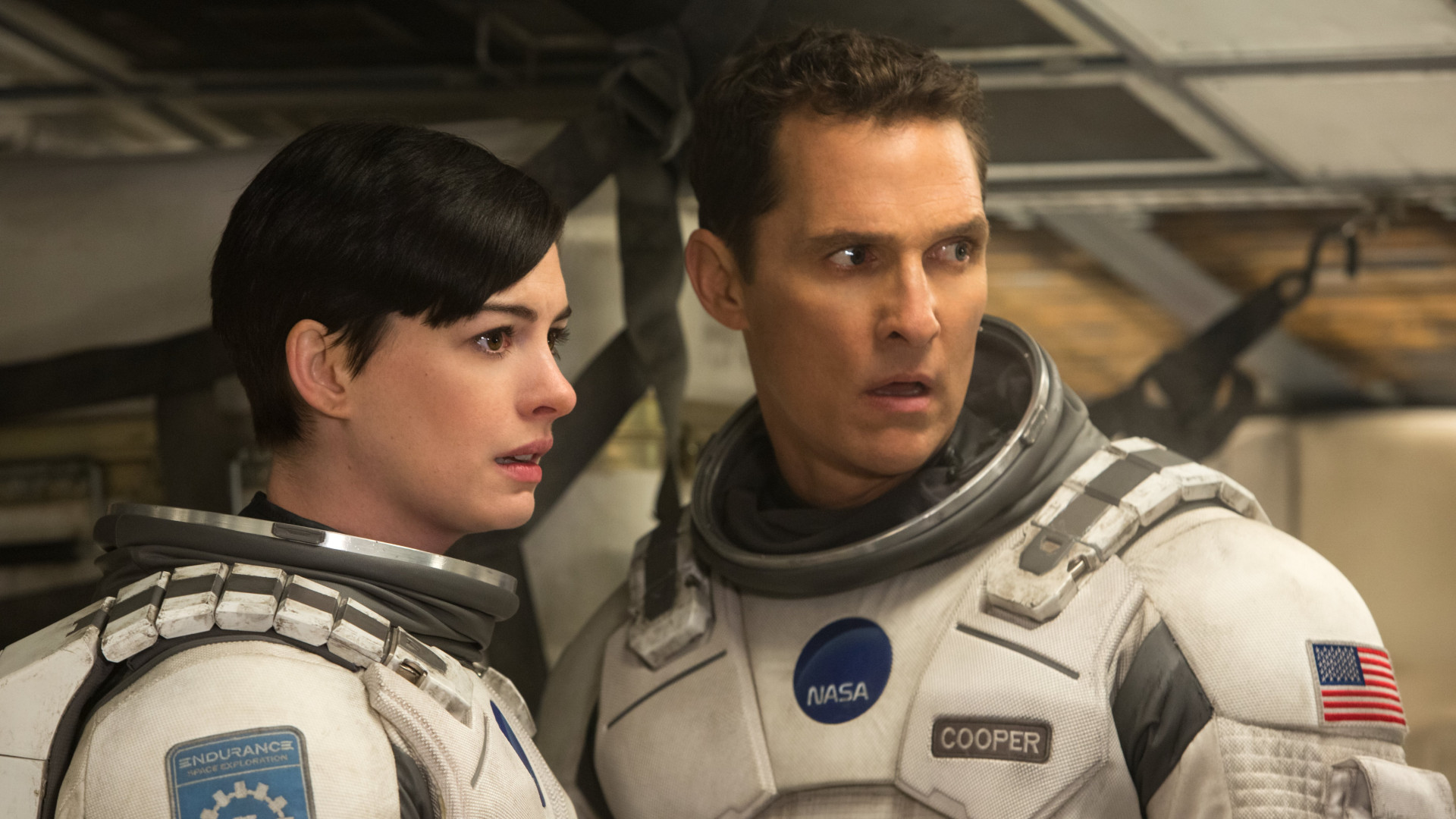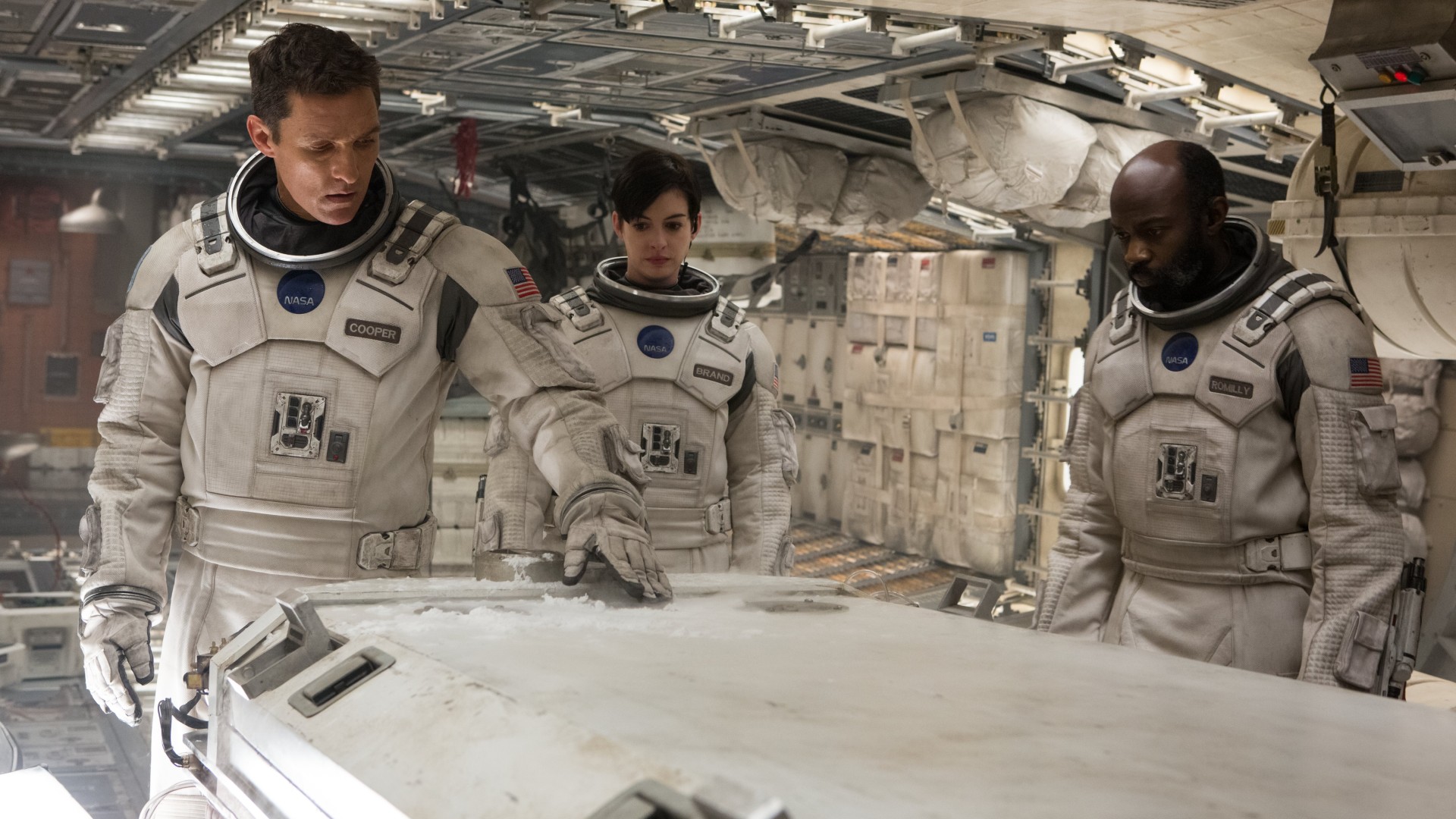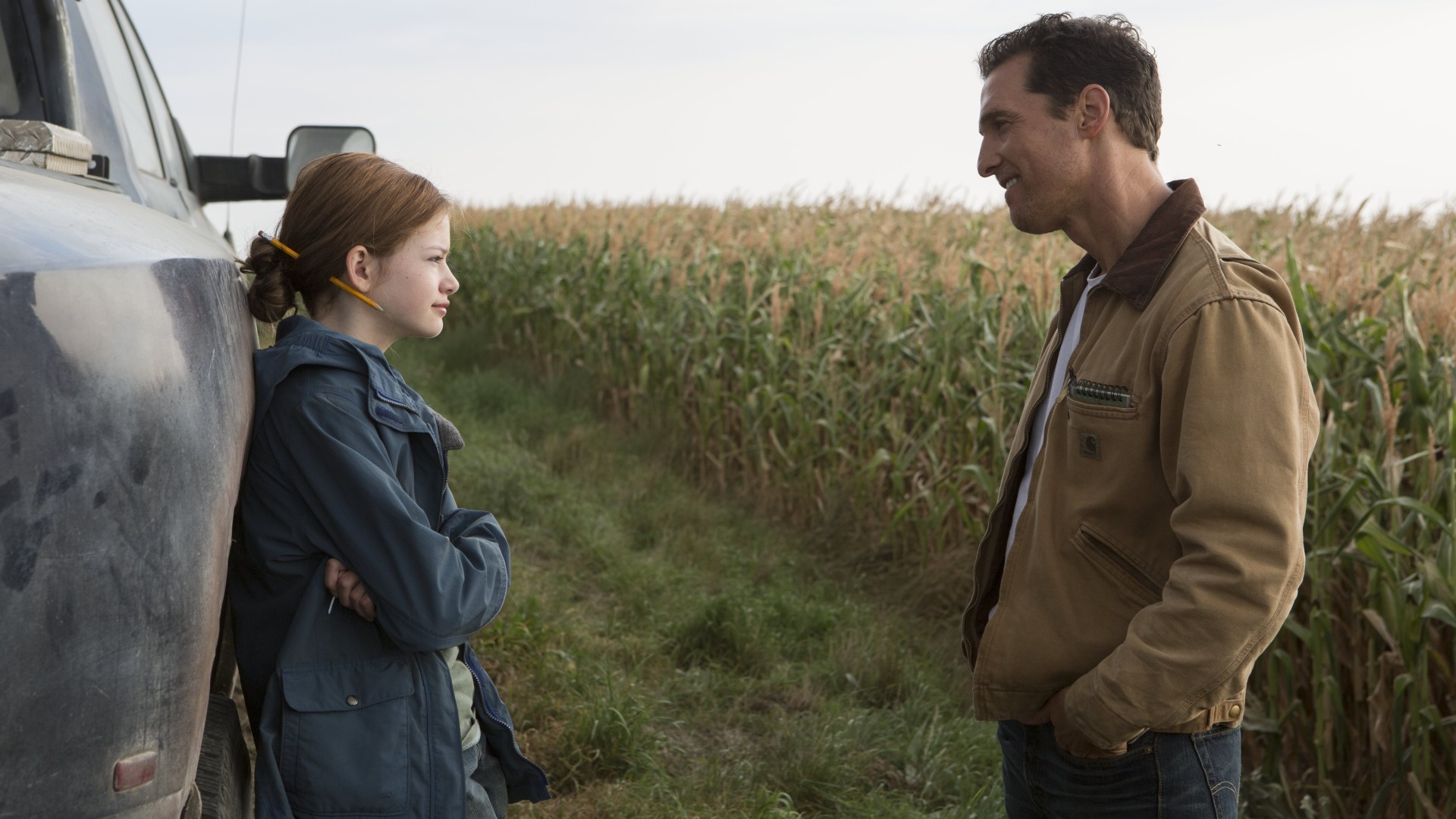
If you'll allow me for a moment, I want to take you back to 2014, the year of Ellen DeGeneres' Oscar selfie, the Ice Bucket Challenge and – yes – Christopher Nolan's sci-fi epic Interstellar.
As I sat down in anticipation of Nolan's latest, I wondered what was about to unfold before me. I had mostly steered clear of the marketing, with only its initial trailer (which reins in the focus to show a ravaged earth and a natural phenomenon closing in on Matthew McConaughey's Cooper) as my guide.
Almost three hours later, I left the cinema feeling cold, bemused, and, ultimately, disappointed. Despite its scope and outstanding IMAX visuals, I thought Interstellar was too long, overly sentimental, and – following on from the fit-to-burst The Dark Knight Rises two years prior – left me wondering if Nolan had lost his magic touch.
At 20, I barely gave Interstellar a second thought. Re-discovering it afresh 10 years later at 30, thanks in part to being more acutely aware of the passages of time, I see it now for what it truly is: Christopher Nolan's best, most emotionally affecting work.
Starmaker

Revolving around a dying Earth and the efforts to save its people, former NASA pilot Cooper sets off for the stars in Interstellar alongside Dr. Amelia Brand (Anne Hathaway) in search of more hospitable planets – but must leave his young daughter Murph behind.
Most Nolan films have big ideas, big emotions, and big set-pieces – but almost never all three. Inception comes close, though its mind-bending premise, spinning-top ending, and treatment of Marion Cotillard's Mal leaves the dream heist thriller feeling slightly less satisfying than desired. Interstellar's greatest triumph is that it achieves all of these.
First, the emotion. For all of the criticisms levied against Nolan, one sticks out – his movies can lack heart and be slightly unfeeling by their nature. That's simply not true of Interstellar, which immediately anchors the movie as a sweet family piece (including a young Timothee Chalamet popping up for a few lines as Coop's son, Tom).
"Interstellar came from a very personal place," Nolan says in Tom Shone's essential book The Nolan Variations. There is a reason, after all, why the working title for Interstellar is 'Flora's Letter', a reference to his then-11-year-old daughter.
From that starting point, Interstellar transcends galaxies and takes in all manner of unknowable and hostile environments but, at its very core, remains steadfast in its emotional message – Cooper is fighting to save what's waiting for him back home on his ranch.
That's why Interstellar's big set-piece hits so hard. In past and future Nolan movies, the director would do everything from crashing a real Boeing 747 to flipping rooms literally upside down for his bombastic sequences. Here, the big moment lands with a similar thud – but it's a gut punch rather than an explosion.
In one of 21st Century cinema's finest scenes (which you can watch here in full), Matthew McConaughey's Coop returns from a planetside mission having lost years of his life due to time dilation. It's there where he's met by videos of an adult Murph (played by Jessica Chastain) growing up over decades.
Encompassing that singularly intense loss is hard enough but, thanks in part to Nolan's personal touch wringing out every last drop of feeling, McConaughey delivers an achingly beautiful and devastating response to those missing years. Cillian Murphy's lead Oppenheimer performance rightly receives plaudits, but it doesn't have a moment like this. Coop isn't just grieving what has been lost; he's grieving the uniquely complex feeling as he realizes he wasn't able to grow old alongside Murph.

The emotion and emotion-laden set-pieces are strong enough to catapult this to the top of any Nolan fan's rankings, but it's the director's playful experimentation with space and time that really seals the deal.
Case in point: Interstellar's ending features an all-timer of a twist, one that only enriches subsequent viewings. As Coop ends his mission by travelling into a 2001-esque wormhole, it's revealed that the 'ghosts' first seen earlier in the movie that kickstarted his voyage are revealed to be Coop communicating to himself via a four-dimensional plane.
The magic of Interstellar, much like its final rug pull, is in its paradoxical nature. It's about the vast emptiness and loneliness of space and, at the same time, it's an intimate story about a father and daughter. Nolan threads an impossible needle achieving both, large in part thanks to welding together his past experiences on big Hollywood blockbusters – and all the scale that comes with it – and by quieting his naysayers by presenting audiences with that rare thing: a $165 million story about Nolan's own guilt in leaving his daughter behind to go to work.
So, yes, hands up – I was wrong. Interstellar is Christopher Nolan's finest film to date. In a body of work that encompasses the best superhero movie ever made, a Best Picture winner, and a daring Hollywood debut in Memento, that takes some doing. But Nolan aimed for the stars and succeeded in his mission. It just took me a decade to realize that.
For more, check out our overall rankings of the best Nolan movies, plus all the latest movie release dates you have to look forward to.







